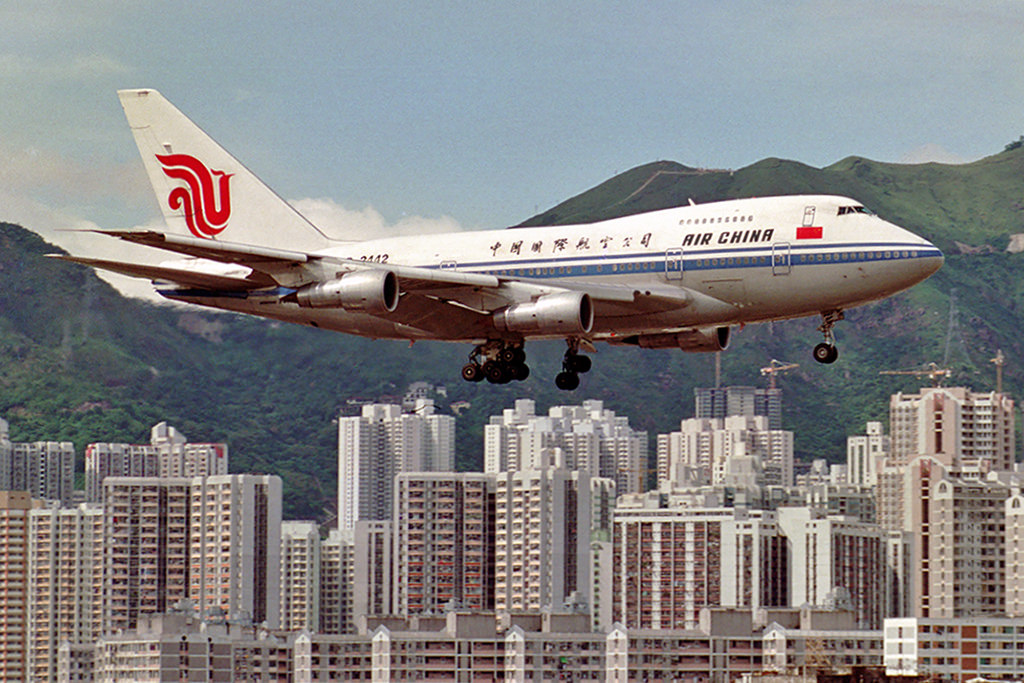As part of the official celebrations marking the twentieth anniversary of the 1997 hand-over, on 1 July 2017, Hong Kong and the world witnessed the head of China’s party-state-army 黨政軍 review troops of the People’s Liberation Army stationed in the former British colony.
The theatre of that occasion recalls a theatrical work by the satirist Hsiao T’ung 蕭桐. Hsiao, best known by his penname Yau Ma Tei 优瑪蒂, was born in Republican Beiping 北平 (aka Peking, Pei-p’ing, ペキン, Beijing, 北京) in 1929. He relocated first to Taipei in 1949, and then to Hong Kong in 1961. His nom de plume 优瑪蒂 (Yau Ma Tei) is a homophone for Yaumatei 油麻地, the district in Kowloon where Hsiao lived. Both are pronounced ‘youmadi’ in Standard Chinese, and, in Hsiao’s Peking-accented voice, they conveyed a hint of the ribald.
***
In 1981, the veteran journalists Hu Chu-jen (胡菊人, 1933-) and Lu Keng (陸鏗, 號大聲, 1919-2008) founded Pai-hsing Fortnightly 百姓半月刊. Prior to that, Hu had been an inspirational editor at Ming-pao Monthly 明報月刊 from the late 1960s. During the dark days of atavism on the Mainland, and terror in the Crown Colony, Ming-pao was a bastion of cultural independence and literary style. Lu Keng was a veteran newsman who, having survived three decades in the People’s Republic, relocated to Hong Kong in 1978.
As a journalist in wartime Chungking, Lu Keng was gaoled for having crossed the KMT authorities. Following 1949, he was caught up in the Rightist Campaign authored by the Communist Party. After arriving in Hong Kong, Lu soon became known for his staunchly independent approach to Chinese politics. He would distinguish himself by being banned from Taiwan for having the temerity to suggest that, since his health was in obvious decline, the island-nation’s president Chiang Ching-kuo 蔣經國 should relinquish power. Then, in 1985, he secured a famous interview with Communist Party General Secretary Hu Yaobang in Zhongnanhai, the party-state compound in Beijing. In early 1987, that interview was cited by Hu’s factional enemies as proof positive that the head of the Party was dangerously lax in dealing with ‘bourgeois liberalisation’, that is, challenges to Communist authority.
In Pai-hsing Hu and Lu created a unique journal in what was already a rowdy and diverse publishing scene. Hu Chu-jen emigrated to Canada in 1996. Lu Keng was granted permission to visit relatives in his birthplace in Yunnan in 2007. He passed away there in June 2008.
***
Yau Ma Tei’s ‘Playhouse’ 小劇場 — which offered a comic account of current affairs; written skits that were a form of theatrical záwén 雜文 — was a regular feature in Pai-hsing. Some thirty-five years before Xi Jinping’s 2017 touch down, Hsiao gazed into the future and saw how it might work. This translation of Hsiao’s ‘1997 Rhapsody’, commissioned by John Minford, was included in the 1988 Hong Kong Special Issue of Renditions 譯叢. Explanatory notes have been incorporated into the text. This is the second instalment in a China Heritage series on Hong Kong. The first, Cauldron 鼎, which featured a poem by P.K. Leung 梁秉钧, was published on 1 July 2017. Yau Ma Tei’s satire also adds to our ongoing consideration of Chinese humour (see, for example, 幽默: You Having a Laugh? — the birth of humour in modern China).
***
Here I would also like to remember Hsiao T’ung as a man who, through his garrulous humour, splenetic (but hilarious) outrage, his turns both of mock high dudgeon and honeyed flattery, gave me deeper insights into the temper, and tone, of Old Peking.
We met in 1978 under the auspices of Lo Fu 羅孚 (羅承勳, 1921-2014), a famous Communist ‘united front warrior’ and editor about whom I will write in the future. In the following years, over meals, during rowdy banquets and at literary gatherings, Lao Hsiao unfailingly indulged a young writer and translator (I was twenty-four when we first met). Travelling frequently between Hong Kong, Beijing and Shanghai as the Cultural Revolution gloom lifted on the Mainland, I would gradually encounter the hidden world of Peking in Beijing itself; the guidance I had received from Yau Ma Tei was precious. It would be a decade before I became friendly with the novelist Wang Shuo 王朔, China’s most famous ‘Beijing Wag’. When we met I immediately knew that long ago, in Hong Kong, I had been befriended by his ancestor in humour, Hsiao T’ung.
One of Yau Ma Tei’s favourite curses — a line that frequently exploded from him when he described the latest absurdity or outrage authored by the Communists — remains one of mine: ‘Fuck eighteen generations of your Ancestors!’ 肏你祖宗十八代!
— Geremie R. Barmé, Editor, China Heritage
4 July 2017
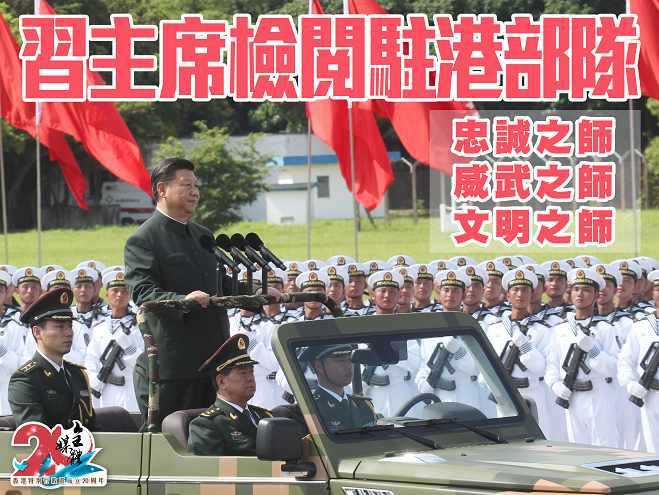
1997 Rhapsody
A Prophetic Documentary Film
by Yau Ma Tei
Translated by Geremie R. Barmé
(0) The Great Hall of the People, Peking
Title: 9:10 a.m., 23 September 1982.
HONG KONG REPORTER: Sir, should the people of Hong Kong be worried about the future?
ZHAO ZIYANG: You say what?
REPORTER: Should we be concerned about the future?
ZHAO: Not at all.
REPORTER: Why shouldn’t we be?
ZHAO: Why should you be?
Background music: strains of a song recorded in an echo chamber, the words are ‘What Me Worry, Worry, Worry, Me?’
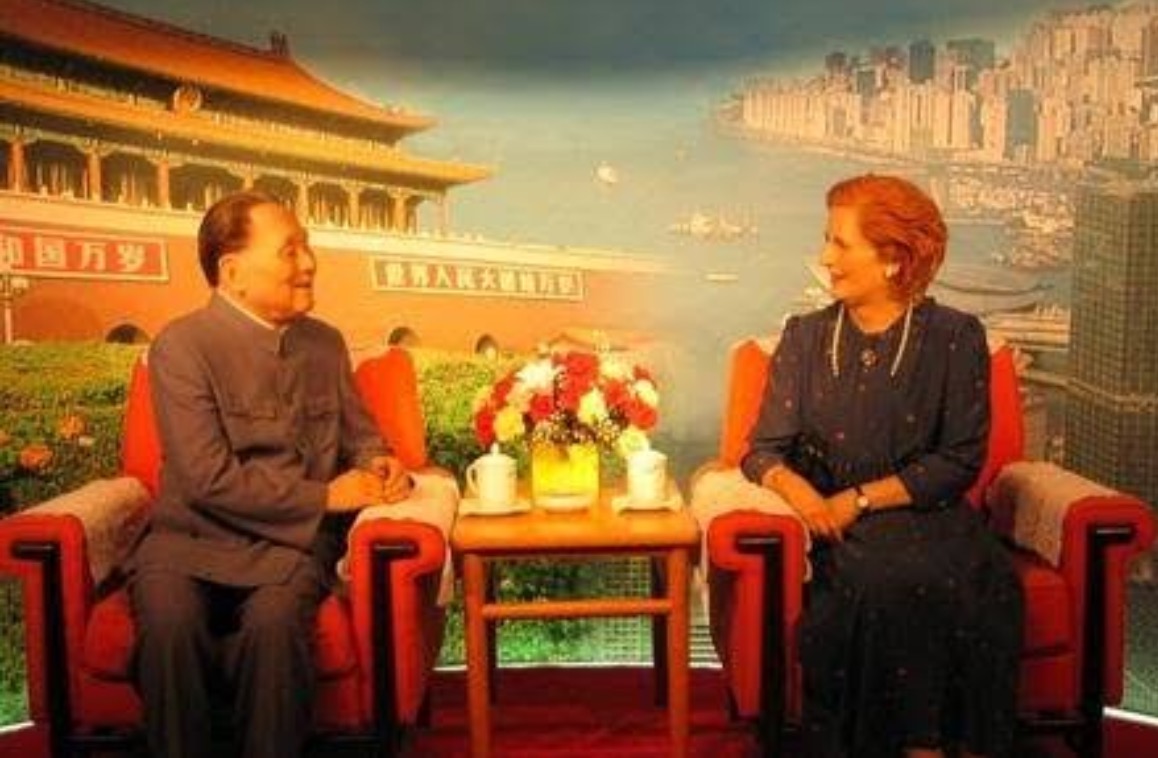
(1) Governor’s Residence, Hong Kong
Title: 1 July 1997.
A sign hanging in front of the former residence, red on white reads: ‘The Xianggang Special Administrative Region’.
A five-star red flag is slowly hoisted and billows in the wind.
VOICEOVER: The people of Xianggang have stood up! [1] [1: On 1 October 1949, at the ceremony marking the founding of the People’s Republic of China Mao Zedong declared: ‘The Chinese people have stood up!’]
MUSIC (the national anthem of the People’s Republic of China): ‘Arise, ye people who wish not to be enslaved, use our flesh and blood… .’
(2) People’s Avenue, Kowloon (formerly Nathan Road)
The serried ranks of the People’s Liberation Army march down Nathan Road amidst the clamour of a military band.
There is a sea of red flags waving in welcome; the sound of fireworks fills the air and the crowds roar their approval.
A policeman enters.
HAWKER A: Hey, Ah-Sir, just take a look at those PLA boys of ours. Goddam impressive.
POLICEMAN: Aren’t you forgetting, mate, that you swam over here from Canton in 1980?
A: Right you are! I made a special trip from Guangzhou so’s I could be here in time to welcome Liberation. How I’ve been dreaming of this day!
POLICEMAN (to camera): Who’s he kiddin’?
HAWKER B ( takes one look at the policeman and runs off pushing his cart): Split, the fuzz!
A: Take it easy, cousin. The people of Hong Kong, I mean Xianggang, have stood up. (sings a famous song from the pre-1949 Liberated Areas) ‘The skies in the Liberated Areas are blue and clear, for the masses there ain’t nary a tear!… . Hey, Ah-Sir, let’s take a rest in a shop.
(The policeman looks in the direction indicated by A: dozens of large companies have hung out new signs such as: ‘Mainland Immigrants Shop’, ‘Red Flag Store’, ”Morning Sun Retailers’, ‘The East is Red Canteen’, ‘East Wind Trattoria’. Above them high-rise buildings stand empty with massive cloth banners flapping in the wind: ‘Owner anxious to let. Ten fen per square foot. 20% discount for tenants who rent over 1,000 square feet, and a free bowl of barbecue-pork rice.’ ‘Building, excellent fung-shui; must go. Suicidally low prices. It’s positively your last chance, Comrades… .’)
POLICEMAN: All the capitalists have skipped town. It’s all yours now, fella. (accepts a ‘Qianmen’ cigarette from the hawker and takes a puff) High class smokes, eh?
A (pointing at the ‘Mainland Immigrants Shop’ as he draws on his cigarette): This choice spot only costs me five yuan a month. Water, electricity and rates are paid for by the landlord. Cheap all right, in fact, it’s a steal (laughs). If you ask me, Ah-Sir, I reckon you should go into business as well.
POLICEMAN: Well, pal, hope you keep an eye out for me in the future.
(Columns of People’s Liberation Army soldiers cross Nathan Road.)
ARMY SONG: ‘Every revolutionary soldier must pay attention, to the Three Great Disciplines and the Eight Awarenesses… .’
(At the newspaper stalls outside the People’s Restaurant there are only about half a-dozen papers on display, with an equal number of magazines, and four pictorials.[2] The owner of the’ stall is sitting on a stool to one side staring into space.) [2: In 1988 there were 43 daily newspapers and more than 500 magazines and pictorials published in Hong Kong.]
(3) Tsim Sha Tsui, Kowloon
A poster at the entrance to the People’s Theatre reads:
Lin Zexu Now Playing in Xianggang for the First Time. Starring Zhao Dan. [This film is a famous screen representation of the life of Lin Zexu, the Viceroy of Guangdong and Guangxi whose campaign against the opium trade led to the First Opium War and the ceding of Hong Kong to Britain in 1842.]
A red banner hangs at the entrance: Full House.
(4) People’s Park (formerly Victoria Park), Causeway Bay
Cymbals and drums can be heard in the park. Troupes of men and women are dancing the Red Silk Dance as they boisterously sing ‘Socialism is Good’.
(5) Happy Valley Racecourse
Two workers have just hung up a new sign outside the race track. It reads ‘East Wind Park’.
(6) A Betting Centre
The iron grill of a Royal Hong Kong Jockey Club Off-Course Betting Centre is firmly shut; a few lone sparrows flit around outside.
STEWARD OF THE JOCKEY CLUB (looking at the agency wistfully): I’ve lost my job. Tomorrow I’m going back to my ancestral village to start growing sweet potatoes. (He leaves crestfallen.)
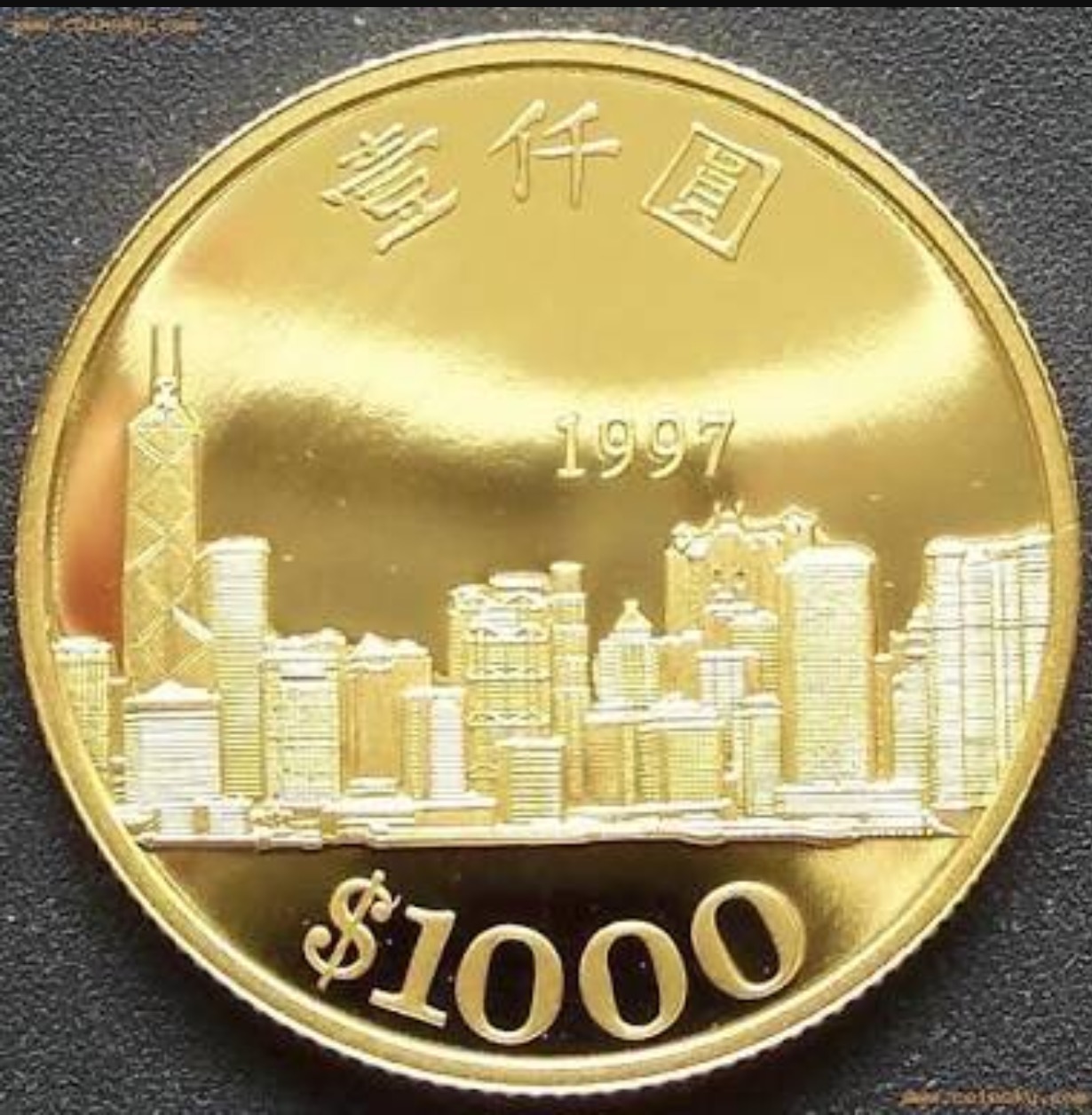
(7) The Hong Kong·Stock Exchange
The Exchange has been renamed ‘People’s Market’. And the notices on the blackboards around the floor read:
Chinese Cabbage: ten fen a catty;
Bitter Melon: ten fen a catty;
Watercress: five fen a catty;
Lean pork: ten fen a catty.
The floor of the Stock Exchange is now covered with baskets containing vegetables, fruit, fish and fowl. There are also many tubs of goldfish on display.
VENDOR (in imitation of broker’s agents): Comrades! Me selling, you buying .
Bitter melon, cabbage, ten fen a catty.
(8) The Good Times Restaurant
Enter a solitary diner.
The waiters are lolling around at tables drinking tea, smoking and reading the
People’s Daily.
DINER: Eh, boy!… (no response. He hurriedly changes the form of address.)
Comrade, comrade!
A waiter wanders over dragging his feet.
WAITER: What d’ya want?
DINER: One bowl of rice with barbecue-pork.
WAITER: That’ll be thirty cents and two grain ration coupons.
DINER (feeling in his pocket): I, I don’t seem to have any coupons on me… .
WAITER: No coupons no food. Piss off. (The diner departs.)
(9) The Xianggang People’s Bank
A bank robber storms in and pulls out a rifle.
ROBBER (shouts): This is a stickup!
The tellers look at him terrified.
ROBBER (to himself): Forget it. If I’m caught they’ll use me for target practice.
I’ll be a goner for sure. (signals with his hand) Take it easy folks.
(The robber throws down his weapon and flees. The tellers look at each other in surprise.)
(10) Robinson Road
Afternoon.
Yau Ma Tei drives up to a luxurious European-style mansion in a Rolls Royce and walks inside.
The Peking correspondent for the Associated Press, Joe Coveryarse stands up to greet him.
JOE: I’ve flown down to Hong Kong just to interview you.
YAU: You are…?
JOE (presenting his name card): Joe Coveryarse, AP Peking correspondent.
YAU: Ah, yes. Please take a seat.
(Two Filipina maids appear with glasses of brandy.)
JOE: I’ve heard that for the past thirty years you’ve been living in poverty. They say you used to live in one of those ‘pigeon nest’ tenements with only 80 square feet of space. The rent was HK$2,660 a month. But now… .
YAU: Hah-hah. Things sure have changed now that Hong Kong’s liberated.
JOE: How’s that?
YAU: I’ll tell you. I bought this mansion on 1 June 1997. The owner was fleeing to America so he let me have it for HK$1,000.
JOE: Wah! Such a beautiful place for that price.
YAU: He tossed the Rolls into the bargain.
JOE: You’re a lucky man, Mr Yau. How’s your wife?
YAU: She’s gone to Shanghai to buy us a place there.
JOE: A house in Shanghai?
YAU: Well, as Vice-Chairman of the Hong Kong Writers’ Association I get a monthly wage of 3,600 yuan and 1,000 yuan for every thousand words I write. Now I only write one thousand words a day, but still I’ve got so much money I don’t know what to do with it all.
JOE: But I heard you were really hard up in the old society.
YAU: You bet. Before Liberation I wrote over ten thousand words a day but only got HK$20 for my efforts. Pitiful, eh? Finally my dreams have come true.
JOE: Hah! (takes a picture)
YAU: I’m sixty-eight. I may be old but I feel as strong as an ox. I want to keep on writing… .
JOE: Sixty-eight. That’s not old. Back in Peking I’ve heard that Marshal Ye is preparing to come to Hong Kong to get away from the cold northern winter.[3] [3: Ye Jianying (1898-1985), one of China’s foremost military leaders died three years after this was written. As a native of Guangdong, Ye would regularly spend the winter months in the south to avoid the harsh weather of northern China.] He’ll be celebrating his hundredth birthday here too.
YAU: That’s wonderful news. I want to toast the Marshal myself. Speaking of which a good friend of mine, Young Dai, hails from the Marshal’s home town.
JOE: Are you talking about Dai Tian, the poet? [Dai Tian 戴天, a penname taken from the expression ‘{He Who} Refuses to Live Under the Same Skies {as the Communists} 不共戴天, a friend of Yau Ma Tei.]
YAU: Sure. You know him?
JOE: Just bumped into him in the Peking Hotel the other day. He’s been made Vice-Chairman of the Chinese Writers’ Association, and has a room on the seventeenth floor of the hotel. He took me out for a Peking-style meal. We had Mongolian hotpot.
YAU: Give him my regards the next time you see him in Peking. I’ve got lots of other friends but they were all scared shitless and ended up America washing dishes in Chinese restaurants or selling peanuts in Washington. What the heck for? Now they’re all clamouring to come back. Anyway patriotism is not a matter of first come, first served. On behalf of the Xianggang Writers’ Association I welcome them all to return to the Motherland.
JOE: Mr Yau, could I ask you what you think the prospects are for the future of Xianggang?
YAU: The future of Xianggang, is it? I think that you could say you can see it in my own circumstances. Hah-hah! In short, the situation is not middling, not fair, but excellent! [5] [5: A Mao quote from the Cultural Revolution. At a time when the country was in a state of virtual civil war, Mao declared that the situation was ‘not middling, not fair, but excellent!]
JOE: Excellent?
YAU: Ah, beautiful Xianggang. Although lots of rich people and millions of dollars in capital have gone elsewhere, that’s no big deal. It’s like rain or a widowed mother’s remarriage — has to happen sooner or later. Nothing you can do about it. If they go, they go.[6] [6: Another quote from Mao referring to the inevitability of his hand-picked successor Lin Biao’s betrayal in September 1971.] But in the wake of their flight Xianggang has become a major cultural and tourist attraction for the people of China!
(11) Kowloon Train Station
Thousands of mainland purchasing agents and tourists are pouring out of the station.
BUYER A (in a north-eastern accent): Xiao Li, I’m heading straight for North Point.
Where are you camping tonight?
BUYER B: Same old place: the Hilton.
A: That dump. How can you stand it? I’m staying in the Regent in Kowloon.
Come over tonight, I’ll take you to a nightclub.
B: Great. See you then!
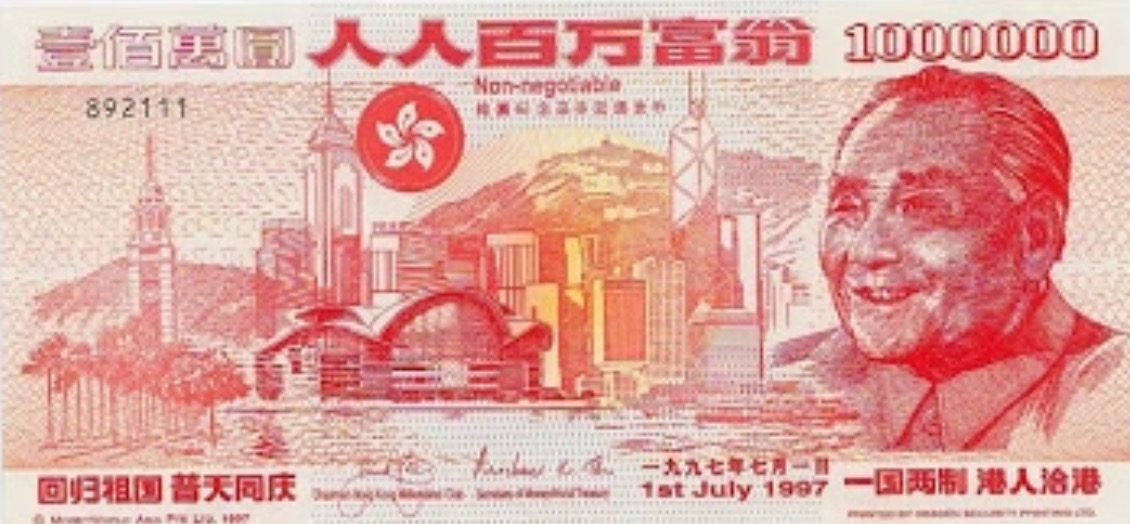
(12) Streets on Hong Kong Island and in Kowloon
The electrical appliance stores, hotels, restaurants and department stores throughout the territory are crowded with purchasing agents and tourists from the Mainland. There are queues everywhere.
‘Comrade, where are you from?’
‘Huhehot, Inner Mongolia. And you?’
‘Me? I’m from Urumchi.’
‘How about him?’
‘He’s down from Lhasa.’
(13) Prairie Fire Electrical Appliances Shop, Mong Kok, Kowloo.n
PEASANT A (pulling out a wad of Renminbi): Comrade, give us half-a-dozen of those 18-inch colour TVs from West Germany.
SHOP ASSISTANT: Certainly. (smiling) Where do you hail from, Comrade?
A (in a north-western accent): Us? I’s from Wutai up in Shanxi province.
ASSISTANT: You sure have come a long way!
PEASANT B: Nah-hopped on a plane in Taiyuan and I were here in two hours.
XINJIANG HERDSMAN: Comrade, give us a few of those American aircon units you’ve got and, while you’re at it, I’ll take a couple of washing machines an’ alL
ASSISTANT: Whatever you say…
HERDSMAN: Got any cars in stock?
ASSISTANT: No, sir, but they have them next door.
[Yau Ma Tei voiceover: Friends, in the six months from July to December 1997, Xianggang earned itself eight thousand seven hundred million in unconvertible Renminbi.]
(14) Pickup Shots
Daytime.
Mainlanders are swarming all over the Ocean Park aquarium and Repulse Bay.
‘Come on, Xiao Li! What’s there to look at here? I’m interested in those buxom French floosies who dance bare-bottom at the Red Sun Nightclub. They really turn me on.’
‘Fuckin’ hell, Old Wang, you’re a horny old bastard.’
‘Hey there, how’s tricks? Did you go off for another fling last night?’
‘Those Taiwan chicks sure are wild.’
‘Don’t forget your wife wants you to take her back an English bike.’
‘Hick, I’ve bought her a car instead: a red Italian sports car.’
‘Geez, this bastard gets a few bucks and goes off his head.’
(15) The Yau Residence, Robinson Road
Dusk.
JOE COVERYARSE: From what you’ve told me, Mr Yau, the situation in Hong Kong is not just excellent, it’s superb.
YAU: Let me tell you something, brother. By the year 2001 the per capita income of people in Xianggang, like the people throughout the rest of the country, is going to increase two hundred-fold. By then a factory apprentice will make 3,600 Renminbi a month. Nothing can stop us. Hah-hah-hah!
JOE: I’m afraid I must be on my way, Mr Yau.
YAU: Surely you can stay for a simple meal though? (to servant) Helen, what are we having for dinner tonight? Could you show our guest the menu?
The servant hands Joe the dinner menu.
JOE (reading): Seven appetizers, East River Salt-roasted Chicken, Stir-fried Shrimp, Crab-meat Dumplings, Chicken-filled Pastries, Crisp-fried Prawns, Winter Melon Soup with Eight Precious Ingredients, Prawn Dumplings, Beehive-shaped Yam Puffs, Fresh Mushrooms with Hearts of Cabbage, Peking-style Squirrel Fish, Fried Rice and Noodles, and Two Dessert… . Very impressive, indeed!
YAU: Really, we have nothing special to offer you. But do drink up. (raises glass)
Bottoms up! (Joe thanks Yau effusively.)
(16) Kai Tak Airport, renamed Jiulong People’s Aerodrome
Daytime.
A CAAC plane lands.
The door opens and a silver-haired Zhao Ziyang, dressed in a metallic-blue suit, appears at the top of the gangway.
Music swells as over one thousand primary school children rush forward waving bouquets of flowers, shouting ‘Welcome, welcome, a warm, warm welcome!’ Chinese and foreign reporters crowd forward to take advantage of the photo opportunity.
HONG KONG REPORTER: Do you remember me, Premier Zhao?
ZHAO: Ah?
REPORTER: On the morning of 23 September 1982, I spoke with you at the Great Hall of the People in Beijing… .
ZHAO: Ah, yes. Now I remember. Why we’re old friends! Now you can see for yourself. There’s absolutely no need for the people of Xianggang to be concerned about their future. They don’t have a worry in the world.
(freeze frame)
(The chanting of ‘Welcome, welcome, a warm, warm welcome!’ continue amidst the martial music.)
— Au revoir —
